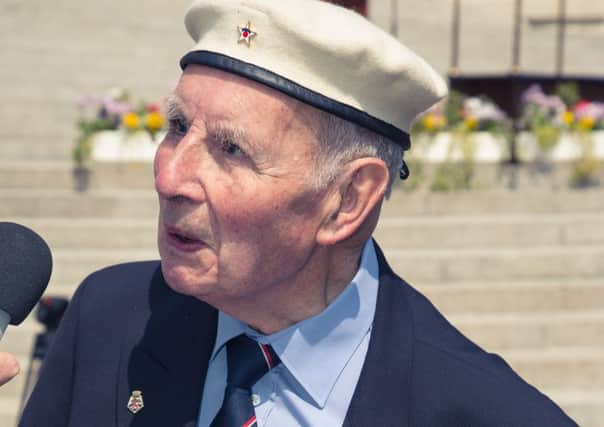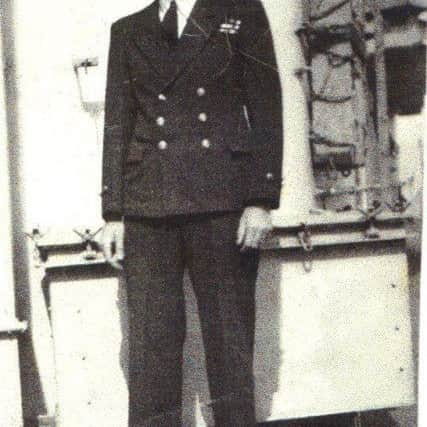Tributes paid to Portsmouth Arctic Convoy '˜hero' Albert Norris


Albert Norris was one of thousands of men to sail in the perilous Arctic Convoys during the conflict.
The voyages, reportedly called the ‘worst journey in the world’ by Winston Churchill, took supplies to the Soviet Union from 1941 to 1945.
Advertisement
Hide AdAdvertisement
Hide AdMore than 3,000 men died while on the convoys – many of them Albert’s friends and comrades.


But in spite of all their courage, braving Nazi warships and perilous conditions, Albert and his fellow veterans never received an official medal.
It took almost 70 years battling tooth and nail for the few remaining survivors to be honoured with their own campaign medal – the Arctic Star.
Albert received his at a celebration in Portsmouth’s Guildhall, in June 2013.
Advertisement
Hide AdAdvertisement
Hide AdAnd now the great-grandfather-of-six, of Horndean, is to be given a hero’s funeral after he died, aged 96.


His family have paid loving tribute to ‘a kind and caring father’.
Son Phil, 65, of Sittingbourne, Kent, said: ‘He was a hero to us. We are all devastated by his death.
‘He was one of those heroes of World War Two and a lot of people need to be grateful of the sacrifices he and his friends made.’
Advertisement
Hide AdAdvertisement
Hide AdAlbert was born in Greetham Street, Southsea, on February 2, 1920 and attended St Luke’s C of E School – now known as Charter Academy.
At 16 Albert – known as Bert by family and friends – joined the Royal Navy as a boy artificer and began his training at HMS Fisgard, in Chatham, Kent.
The day before Britain declared war on Germany, Albert and his fellow artificers were transported from Chatham to Portsmouth, where he joined Fiji-class cruiser HMS Kenya.
‘There were 60 apprentices that my dad trained alongside,’ said Phil.
Advertisement
Hide AdAdvertisement
Hide Ad‘Within three months they had almost all been wiped out – there were just nine left. It was an horrific time.’
Albert served non-stop through the war, being involved in the hunt for the German battleship Bismarck and six Russian convoys.
In 1942, he was also part of the desperate operation to resupply the besieged island of Malta.
The Allied forces suffered huge casualties at the hands of the Axis forces, with only a small portion of the aid run making it to Malta; Albert’s ship Kenya survived a blast from a torpedo.
Advertisement
Hide AdAdvertisement
Hide Ad‘Dad was one of those incredibly lucky people to make it through the war,’ Phil added.
He left the navy in 1952 and worked as a laboratory mechanic at the Gunnery Experimental Department on Whale Island. In 1965 he joined the Weapon System Tuning Group’s sonar section.
Albert was married to Eileen, who died of cancer in 1989, aged 69. They had two children, Phil and Graham, four grandchildren and six great-grandchildren.
His funeral is on Friday, October 28, at Portchester Crematorium, at 3.30pm. His casket will be draped with the Union flag and white Arctic Convoy beret.